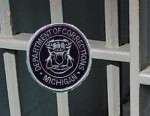As President Obama’s economic stimulus bill gains momentum in Washington, one Michigan lawmaker is scrambling to get help for his constituents.
State Rep. Wayne Schmidt of Traverse City said he is looking hard for “shovel-ready” projects that could qualify for funding.
“I’ve met and talked with county people, city people, people from the townships and villages, the Northwestern Michigan Council of Governments, every one is rushing to develop a list.”
Dozens of state legislators are in the same situation as Schmidt. At a meeting last Thursday with Gov. Granholm, newly elected lawmakers were directed to meet with officials in their districts and come up with a list of projects that could be “shovel-ready” within 90 days, Schmidt said. Granholm said she wanted all suggestions by this Friday, he added.
But Schmidt said that he and others are confused about who can apply for funding under the package.
“People are rushing to come up with projects without really understanding the guidelines.”
The first-term Republican also said he is worried that the rush to find road projects by Friday could damage fragile efforts on behalf of regional transportation planning.
“The [Department of Transportation] has been working with larger areas that have metropolitan planning authorities, but we don’t have that yet.”
There are few highways in the 104th district which includes Grand Traverse and Kalkaska counties. Over the past few years, hundreds of residents have taken part in a federally-funded regional transportation and land-use planning project called “The Grand Vision.” Schmidt was involved in this process as chairman of the Grand Traverse County Board of Commissioners. The consensus that is emerging from the Grand Vision appears to favor increased density in urban areas and more bike paths and public transportation, but coordination among local units of government to promote such development has been slow-going.
During a Tuesday meeting with Michigan Department of Transportation (MDOT) Director Kirk Steudle, Schmidt said he was told that infrastructure development money from the stimulus package could be used for bike paths and railroad development as well as for road building.
With only a few days left to identify projects, Schmidt said he is unclear about who could apply for money to restore a damaged railroad line between Ann Arbor and Traverse City.
“I was trying to find out about the Great Lakes Central Railroad — would [the railroad company] submit a project to upgrade a railroad or would the state do it?” he asked. “Or would it be the counties on their behalf?”
Schmidt said he wants to “make sure northern Michigan gets its fair share” of the stimulus money and that he’s concerned that a disproportionate amount of the money may be directed downstate.
He said he plans to continue to travel the district soliciting projects this week, but that he is not optimistic that spending on construction will result in long-term economic benefit for Michigan.
“We are going to be going into a record amount of debt,” he said, “and it’s going to be our children and our grandchildren that are going to be dealing with this.”




